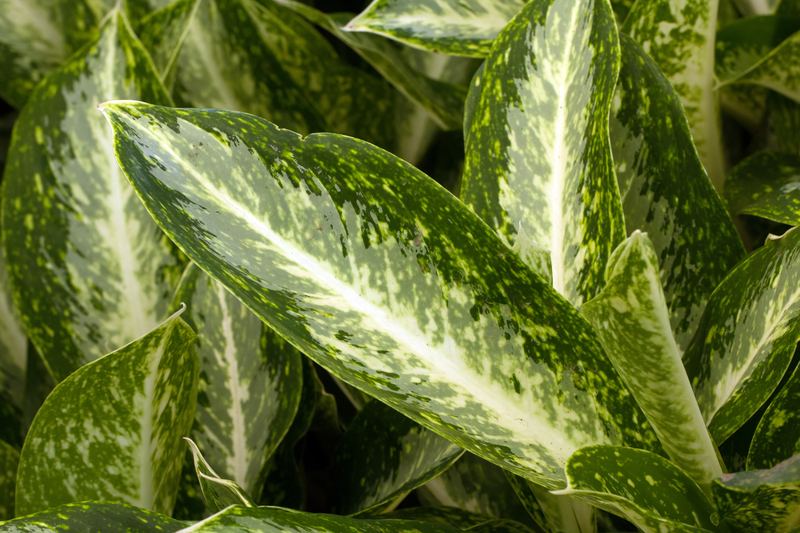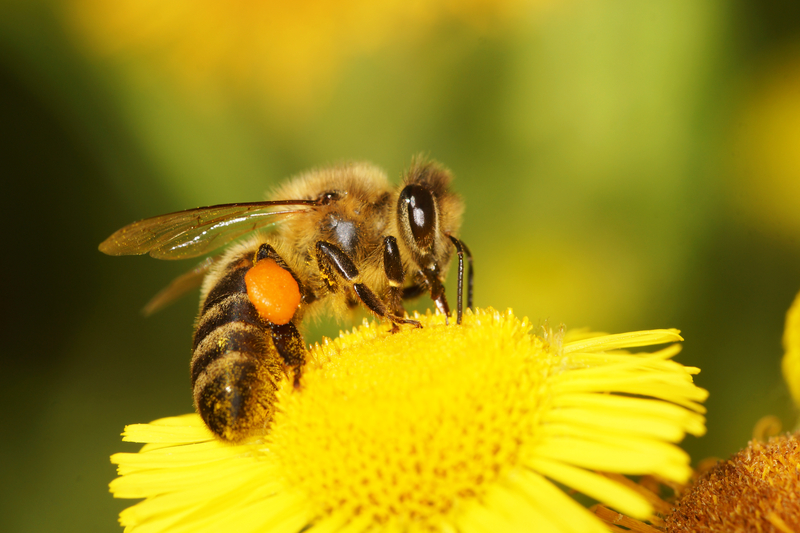Gardening 101: 9 Must-Know Tips for the Newbie Gardener
Posted on 28/05/2025
Gardening 101: 9 Must-Know Tips for the Newbie Gardener
Are you eager to transform your backyard or balcony into a lush, green oasis, but feel overwhelmed by where to begin? Don't worry; you're not alone! Starting a garden can seem intimidating, but with the right beginner gardening tips and guidance, anyone can develop a green thumb. In this comprehensive guide to Gardening 101, you'll discover nine must-know gardening tips for newbies that will pave the way for a thriving, beautiful garden--no experience required.
Whether you aspire to grow vibrant flowers, tasty vegetables, or simply want to enjoy a relaxing outdoor hobby, these beginner gardener tips will help you avoid common mistakes and gain confidence with your gardening skills. So, grab your gloves and let's dig into the basics together!
1. Start Small: Choose Manageable Spaces and Simple Plants
As a first-time gardener, enthusiasm can often lead to biting off more than you can chew. The key to a positive start is to begin small and gradually expand as you gain experience and confidence.
Pick the Right Garden Spot
- Assess Sunlight: Most plants need at least 6 hours of sunlight. Take note of which parts of your yard or balcony receive adequate light throughout the day.
- Accessibility: Choose a spot you'll see and easily reach daily; this increases your likelihood of tending to your new garden regularly.
- Start With Containers: If space is limited, containers or raised beds are fantastic options for urban gardens and balconies.
Easy Plants for Beginners
- Herbs like basil, mint, and parsley
- Vegetables such as lettuce, radishes, and cherry tomatoes
- Annual flowers like marigolds, zinnias, and sunflowers
By starting small and simple, you'll minimize frustration and allow yourself to learn and celebrate every little success.

2. Understand Your Growing Zone and Climate
Gardening success heavily depends on knowing your USDA hardiness zone and local climate. Plants thrive when placed in environments suited for their needs.
- Research your area: Use a zone map to determine which plants will grow best in your region.
- Choose native or well-adapted species: These are more likely to flourish and require less extra care.
"Right plant, right place" is a critical rule for every new gardener to remember.
3. Invest in Good-Quality Soil and Compost
Soil is the foundation of every great garden. Healthy, nutrient-rich earth enables plants to develop robust roots and resist disease.
How to Improve Soil for Beginners
- Test your soil: A basic test kit (available at garden centers) tells you the pH and nutrient levels, guiding your amendments.
- Add organic matter: Compost, aged manure, or leaf mold will increase fertility, drainage, and water retention.
Don't be tempted to skip this step; good soil can be the difference between success and disappointment!
4. Learn How--and When--to Water Properly
Watering seems straightforward, but it's one of the most common stumbling blocks for beginner gardeners.
- Deep, infrequent waterings: Water thoroughly so it reaches plant roots, but allow the soil to dry slightly before the next session.
- Morning is best: Watering early lets foliage dry before evening, which helps prevent disease.
- Use mulch: Mulching around your plants keeps soil moist and suppresses weeds.
Gardening Tip:
Stick your finger into the soil about 2" down--if it's dry, it's time to water. Overwatering is just as harmful as underwatering!
5. Get to Know Your Gardening Tools
Equip yourself with a few basic garden tools--they'll make your tasks easier and more enjoyable. Quality trumps quantity for the beginner.
- Hand trowel for digging and transplanting
- Pruning shears for trimming and harvesting
- Gloves to protect your hands
- Watering can or hose with adjustable nozzle
- Rake or small hoe for leveling soil and removing debris
Clean your tools after each use to extend their life and reduce disease risk in your garden.
6. Fertilize Wisely: Feed, Don't Overfeed
Plants, like people, need the right nutrients to thrive. Fertilize your garden according to plant needs and soil test recommendations.
- Organic options: Compost, worm castings, and bone meal release nutrients slowly and improve soil structure.
- Follow instructions: Read fertilizer labels and avoid over-applying--too much can harm your plants.
Remember, "less is often more" when it comes to feeding your young garden.
7. Stay on Top of Weeds and Pests
Weeds and bugs can quickly overrun a garden if you aren't vigilant. Prevention is easier than cure, especially for new gardeners.
- Mulch generously: Cover bare soil with mulch to reduce weed growth and help keep pests away.
- Inspect plants regularly: Look under leaves and along stems for early signs of pests or disease.
- Remove weeds promptly: Pull weeds by hand while they are small, or use a hoe to till shallowly and disrupt seedlings.
Tip: Encourage helpful insects, like ladybugs and bees, by planting pollinator-friendly flowers alongside your crops.
8. Learn Pruning and Pinching Techniques
Proper pruning can keep your plants healthy, vigorous, and beautiful. For beginner gardeners, it's important to know:
- Deadheading: Remove spent blooms from flowers to encourage new ones.
- Pinching: Gently pinch back young plants like basil or zinnias to promote bushier growth.
- Seasonal pruning: Learn when to cut back perennials and shrubs for optimal regrowth and flowering.
Pruning doesn't have to be intimidating! Start with small jobs, and your confidence (and garden) will grow.
9. Keep Learning, Observing, and Enjoying
Perhaps the best gardening advice for beginners is to never stop learning. At its heart, gardening is a journey--not a destination.
- Observe your plants daily: Noticing changes helps you catch problems early and celebrate progress.
- Read gardening books, watch videos, and join local clubs: There's always something new to discover!
- Experiment: Try planting something new each season--successes and failures alike will teach you important lessons.
Remember: Every master gardener was once a beginner. Your efforts will pay off in vibrant blooms, bountiful harvests, and hours of joy.

Quick Reference Guide: Gardening 101 for Beginners
- Start small - Manageable space and plants make learning fun.
- Know your climate - Select plants suited to your local zone.
- Optimize soil health - Great soil nurtures strong roots.
- Water properly - Avoid common overwatering errors.
- Use the right tools - A handful of basics will do.
- Fertilize carefully - Feed plants, don't overdose.
- Prevent weeds and pests - Mulch and observation are your friends.
- Prune and pinch - Boost health and flowering.
- Keep learning - Curiosity grows vibrant gardens!
Frequently Asked Questions for New Gardeners
- How much time does a beginner garden require?
Starting with a small plot or a few containers, expect to spend 15-30 minutes per day. As your space expands, your time commitment may grow, but so will your rewards! - What's the best fertilizer for newbie gardeners?
Organic compost is often ideal for beginners. It enriches soil gently and is hard to overapply. - Can I start gardening if I only have a balcony?
Absolutely! Container gardening is perfect for balconies--just choose pots that suit your sun exposure and try herbs or compact veggies. - When is the best time to start my garden?
Follow your region's last frost date for most annuals. For beginners, spring or early fall is typically best.
Final Thoughts: Embrace Your New Gardening Journey
With these top gardening tips for beginners in your toolkit, you're equipped to create a garden filled with life, color, and delicious harvests. Remember, the most beautiful gardens are those nurtured with patience, curiosity, and a touch of love.
Happy gardening, and may your green thumb flourish!
Liked this Gardening 101 guide? Share it with fellow new gardeners, and check back for more tips as you grow your skills!
Latest Posts
Mastering the Essentials of Container Gardening
Finding Purpose in Overgrown Greenery: A Makeover Guide
3 Power-Packed Tips for Winning the Weed War

